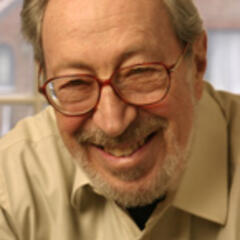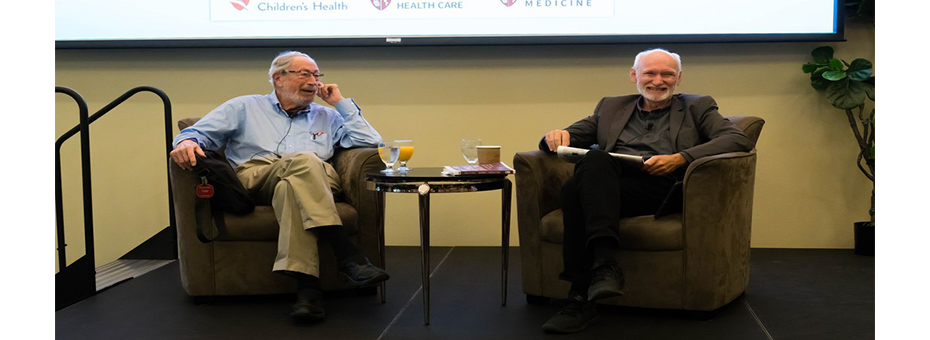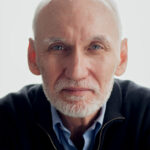Edgar Schein passed away last Thursday, January 26, 2023. Ed, the godfather of organizational development, was a spry 94 years young — and going strong until the very end. According to son Peter, Ed passed away after working until supper time, with no illness, no pain, and no hospitalization. Even in passing, Professor Schein was an inspiration for us all.

I first met Ed in 2009 when David Verble corralled a group of us to attend Ed’s workshop based on the content of his book Helping, in which he laid out the logic and process of what he later came to call Humble Inquiry.
But I really got to know Ed when for seven years running, I had the privilege — one of the great honors of my career — of sharing the stage with Ed at the Stanford Lean Healthcare Academic Conference for an episode that came to be known fondly as the annual Shook ‘n Schein Show. Conference organizers Denise Bennett and Terry Platchek and Ed’s son Peter Schein came up with a slightly different spin on the session every year. Still, the essence was always Ed and John sparring and parsing the nuance of healthcare improvement as a socio-technical system improvement.
I think we shared 90% agreement on the matter, but you wouldn’t know it from the sparring and parsing. For example, we agreed that organizational systems are 50/50 social and technical. However, Ed was convinced that the technologist’s refusal to recognize the value of the social dimensions in organizations was a source of endless organizational ineffectiveness. At least once in every session, Ed would accuse me of being precisely such a technologist. I learned so much from our interactions, as did the audience members.
If you don’t know Ed’s work, you should. From Organizational Psychology in 1965 to the recent series of “humble books” to Ed and Peter’s 2019 Corporate Culture Survival Guide, Ed is the giant of organizational development and corporate culture theory.
To get started, here are links to reports of our 2017 session at the Stanford Conference:
- Edgar Schein and John Shook On Coaching – complete transcript from Lean Healthcare Academic Conference at Stanford, September 2017
- A Humble Conversation
- Thoughts on Coaching from John Shook and Edgar Schein
Also, here are links to my 2010 Sloan Management Review article, “How to Change a Culture: Lessons from NUMMI” and my 2009 Lean Post article, “How NUMMI Changed Its Culture,” both of which lean on Ed’s model of organizational culture.
— John





Dear John – Thank you for your thoughts on Ed’s passing which I have just learned about via Lex Schroeder’s LinkedIn post. Ed also had a massive impact on me and my work. Before I attended actually the same workshop as you on Cape Cod I had the good fortune to work five years for an automotive company that was scaling a new plant from scratch at the time I entered the company. Interestingly enough I am neither an engineer nor automobile enthusiast but my passion is about people and the processes they run. So I found myself quite often in situations on the various parts of the shopfloor where I practised humble inquiry without even knowing about it. The reason mostly was that I honestly did not know the underlying processes in most cases. So I asked my colleagues quite innocently trying to understand and solve arising production problems. And as Ed describes the essence of ‘humble inquiry’ these questions opened a communication channel and trust level that enabled me to gain insights that otherwise, my colleagues did not openly share.
His work will be there forever, and people who have met Ed in person will probably go along when I say, “Ed is the most humble person I have ever met!”
PS: His biography “Becoming American” and the workshop recordings from his course at the Cape Cod Institute definitely have had the most lasting impact, and still open new learnings after several rereads and many hours of listening to.
Beau Keyte and Drew Locher refer frequently to “humble inquiry” in their book, The Complete Lean Enterprise: VSM for the Office. Now I know where it came from.